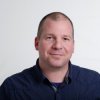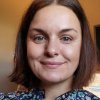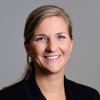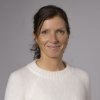
HUNT One Health

HUNT One Health is led by Øivind Øines at the Veterinary Institute and is a collaboration between the Veterinary Institute, NTNU and the VFaculty of Veterinary Medicine, NMBU.
Ann-Katrin Llarena is project manager at NMBU.
Goal
The project's main purpose is to facilitate the development of new knowledge about connections between human and animal health, and how they affect each other. It will contribute to being able to prevent disease and provide good health in both animals and humans. The term One Health expresses that there is a health-related connection between people, animals and the environment.
HUNT One Health is based on a parallel collection of stool samples from animals and participants in HUNT 4 in the period 2017-2019. The animal samples were analyzed with modern sequencing technology so that the microorganisms in the samples and their characteristics can be mapped. This sequence data with associated epidemiological data from the animals is available for research projects after a short application process. This is how HUNT One Health wants to contribute to understanding how the microbial community in animals interacts with the microbial community in humans and with the environment. A parallel study of the microbiome in animals and animal owners on such a large scale where it is possible to link this to the health status of animals and people makes HUNT One Health unique in a global context.
Status and progress
The collection of sample material, including faecal samples, from animals and animal owners in HUNT4 was completed in the spring of 2019.
Around 3,000 faecal samples from dogs, cattle, sheep, horses and pigs were received from around 1,700 animal owners who themselves participated in the HUNT 4 survey with their own faecal samples. In terms of production animals, these were cattle, pigs and small cattle, approx. 1000 samples, otherwise there are many dog samples and some from horses.
Associated projects
Res-Pet: Zoonotic aspects of infections caused by mulit-resistant bacteria in pets) (H1H_2020_001). Analysis of similarities and differences in the occurrence of antimicrobial genes in the intestinal microbiota of dogs and owners. The project is owned by NMBU and run by research fellow Mari Røken.
Characterization of dog resistome in Norwegian dog faeces H1H_2021-058. The project is owned by NMBU and the Veterinary Institute and is run by master's student Oda Karlsen.
Sharing of bacterial strains between animals and animal owners in HUNT 4 (H1H_2022_59). The project is owned by NTNU/IKOM and run by Post doc Robin Mjelle.
For researchers
The complex community of bacteria, parasites, viruses and fungi in the gut, skin, blood, saliva, etc. is important to ensure good health in humans and animals, and by investing in more research around this, we will be able to understand this complicated interaction better. HUNT One Health is a start, and the plan is to expand this into a research system that can offer material for research on animal health, public health and especially on the complex interaction between humans, animals and the environment. The collected stool samples are a starting point, and other biological samples will be collected in follow-up projects.
The basis for the entire project HUNT One Health is the approach used by HUNT. Material collected in the project must be made available to researchers and thus contribute to the development of the activity over time and HUNT One Health can become an actor in the development of research within One Health. The project will invite researchers widely, but hopefully it will be a core activity around axis VI - NMBU - HUNT4/NTNU.
Access to data and samples
With the launch of the research platform for HUNT One Health, sequence data will become available in Hunt Cloud and the associated biological research material will be made available to researchers, following an approved application to the project's DAK, data access committee.
Under the management of the Veterinary Institute, a national veterinary biobank will be built up in Ås that will include the research material from HUNT One Health. It will also be possible to access the DNA extracted from the samples.
The data access committee is responsible for providing access to research data and material under HUNT One Health, in the same way as HUNT4. DAK consists of the committee consists of the following members of the project group: Øines, Llarena/Rodriguez-Campos.
Request access to research data
HUNT One Health will use its own application platform for projects that concern animals and applications will be processed by HUNT One Health's data access committee. As for HUNT4, the starting point is that researchers will have access to research material given that the purpose of a study is in accordance with HUNT One Health and that access is applied for via the procedures established by the project. The access to data and samples from humans must be requested through HUNT which has its own application portal.
You can apply for access to research data via this form. Fill in the data that is requested, and the DAK will follow up.
Sequencing data
The information generated by sequencing will give us a unique opportunity to gain insight into which microbes are present in the samples, whether any of these may impact health, and we will be able to study functional properties of the organisms, for example by checking for genes encoding antibiotic resistance.
In shotgun sequencing, the entire genetic material present in the material is chopped into small pieces and laid out in a random order. This happens several times so that the same areas of the genetic material are covered by pieces of different lengths. The information is then entered into powerful computers that put the pieces in the correct order by looking at overlapping sequences. In this way, we can find out which microbes dominate in each sample, but also more detailed information that should for example be able to predict whether an animal owner is affected by the microbiome of his animals - or vice versa. Thus, we can use the microbiome data for a number of exciting research purposes.
Application form for access to research data
For animal owners
The HUNT - Health Survey in Nord-Trøndelag is a great example of how population studies can give insight into the health of humans and animals and how diseases can be prevented. By participating in HUNT One Health, you participate in building knowledge about this area - what we like to call One Health. When HUNT4 started, we had the opportunity to be part of a sub-project where we contacted HUNT4 participants and asked if they would contribute with samples from their animals. Many animal owners responded positively to this inquiry and gave their consent to participate in HUNT One Health. Many of these submitted fecal samples of domestic animals, like sheep, cattle and pigs, and pets and horses. Many dog owners also responded to a major survey about their dog-keeping. When the project continues, those who have given their consent will be important in building up the knowledge base for the project.
Consent and withdrawal
You gave your consent to participate in HUNT One Health during the interview for HUNT4. You can, of course, withdraw this consent at any time if you do not wish to continue to participate.
What is it used for?
We have known for many years that there is a connection between human health, animal health and that humans have the benefits of having contact with animals. Many people thrive through animal contact, and that applies to both domestic animals and pets. At the same time, we share many microorganisms between animals and humans, and some of them can cause disease in humans and animals. This is what makes the project exciting - to know about the positive elements of animal contact and at the same time have the knowledge to reduce the risk of infection to humans from animals, or viceversa.
In the first phase of the project, we collected faecal samples from animals. These samples will be examined with modern genetic engineering by sequencing the genetic material present in the sample. The complex "soup" of genetic material in such a sample can be characterized and you can look at what is often called a microbiome or microbiota in animals and correspondingly in humans who have contact with animals. At the same time, you can look at how health conditions affect the composition of each individual's microbiome.
In the same phase, we collected basic information on the sampled animals. A comprehensive survey from dog owners forms the basis for linking information about the microbiome to an epidemiological description of individuals and groups.
How can animal owners use the knowledge generated in the project?
Over time, HUNT One Health will help animal owners learn about beneficial and some adverse aspects of animal keeping, and better understand how the interaction of animals and humans can contribute to a better world for all of us.
The project group
The project group is responsible for the day-to-day management of the project.

Participants
Researchers from The Veterinary Instiute, NTNU/HUNT and NMBU, Faculty of Veterinary Medicine have a close collaboration.
The Veterinary Institute
- Øivind Øines
- Thomas Haverkamp
- Camilla Sekse
- Arne Holst-Jensen
NTNU/HUNT
- Kristian Hveem
NMBU
- Eystein Skjerve
- Ann-Katrin Llarena
- Yngvild Wasteson
- Kristin Herstad
- Ola Brynildsrud
- Ane Mohn Bjelland
- Ellen Skancke
- Mari Røken
- Anja Aardal, Sabrina Rodriguez-Campos
- Silje Hansen
- Anette Krogenæs






